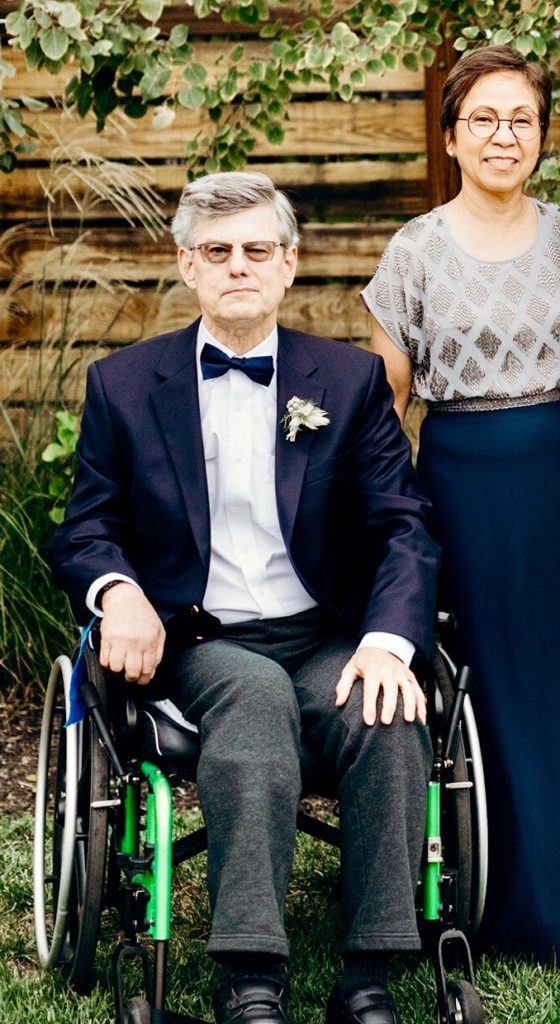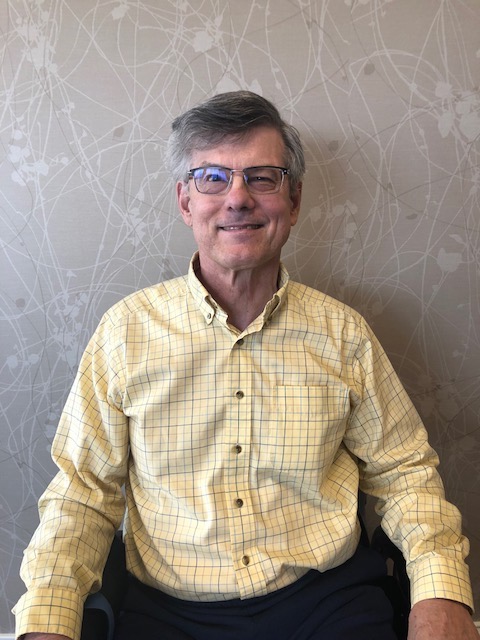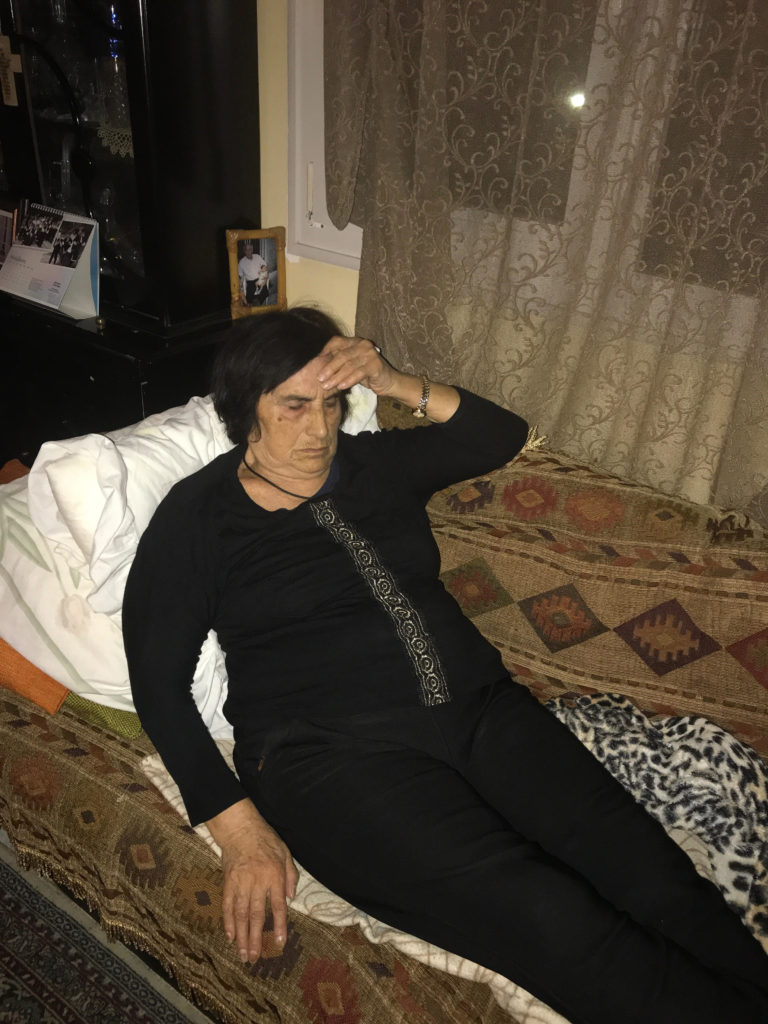Welcome to the Aphasia Threads Project, which weaves together three points-of-view: people with aphasia, caregivers, and the professionals who help each family navigate aphasia. Each week, we bring together three unrelated stories, one from each member of this triad, to learn from their experience. This week, we’ll hear from Peter, a person with aphasia and professor, who had a stroke 4.5 years ago. Then, we’ll hear from Stamatia, who is a caregiver for her mother after a stroke. Finally, we’ll hear from Fidel, a student in communication disorders in Bangladesh.

Person with Aphasia
I am a 70-year-old person with Anomic Aphasia. Four and one-half years ago, I blacked out — I had a stroke. Five days later, I woke up with my wife beside me. I am now in an Assisted Living place. I am in a wheelchair, and my right hand and leg are paralyzed.

Aphasia Changes Your Life
Before I had a stroke, I was Professor of Molecular Biosciences at the University of Kansas—Lawrence. After the stroke, I became an Emeritus Professor. I specialize in RNA biochemistry — specifically, in bacteria and chloroplast transfer RNA 5′ end maturation.
Bacteria (and most other kinds of species) do it in an RNA-dependent fashion. Chloroplast — and as it turns out, plant nuclear and mitochondrial transfer RNA — do it in a protein-dependent fashion. In chloroplasts, I was the first to figure this out!
But There Are Things That Help
My “SwiftKey” on my iPad!
And Things You Learn Along the Way
Go see a professional — a doctor!

What Caregivers and Professionals Can Learn From Me
I am almost normal — so superficially they don’t know I had a stroke. (Except I’m in a wheelchair!)

Caregiver
My mother had a hemorrhagic stroke 10 years ago and is still trying to improve.

Aphasia Changes Your Life
It is very difficult to communicate on a daily basis, but as the years have passed, we have created our own words and expressions to help us.
But There Are Things That Help
I cannot find anything suitable in the Greek language. Even though my mum has speech therapy, we can’t find anything available in term of apps.
And Things You Learn Along the Way
Patience, patience, and perseverance.
What People with Aphasia and Professionals Can Learn From Me
Also have patience and perseverance in helping patients find the most suitable words when communicating.

Professional
Fidel studies Communication Disorders at the University of Dhaka, Bangladesh.
I have a Bachelor of Speech and Language Pathology (BSLP). As a student, I had to attend several clinical practica at the hospital. In our last semester, I dealt with several patients with aphasia (Broca’s Aphasia, Global Aphasia, Transcortical Motor Aphasia, etc) there. And thus became interested in working with people with aphasia.
What I’ve Noticed Along the Way
Frustration at the person’s inability to not be able to speak in the way they did before. And joy at the satisfaction that comes with helping.
There Are Things That Help
Melodic Intonation Therapy (MIT).
“MIT uses the musical elements of speech (i.e., melody, rhythm, and stress) to improve expressive language. This approach capitalizes on intact functioning (singing) while engaging areas of the undamaged right hemisphere that are still capable of language. It is most often used to treat individuals with severe, nonfluent aphasia (Albert, Sparks, & Helm, 1973; Norton, Zipse, Marchina, & Schlaug, 2009). Individuals begin by intoning (singing) simple phrases and then gradually intoning phrases of increasing syllable length. Visual and tactile cues are given by the clinician, and phrases of social and functional importance to the individual are practiced. Reliance on intonation is gradually decreased over time.”
And I Encourage New Professionals to Learn About Aphasia
To be a caring human and devoted person.
What People with Aphasia and Caregivers Can Learn From Me
It’s a joyful profession with satisfaction, and there is no chance to be bored. Try to feel their condition and then do what your mind says.

Want to Be Featured in a Future Article?
Aphasia Threads is an on-going project created by the National Aphasia Association. If you’d like to be featured, don’t leave a comment. Instead, please read the opening post for more information or fill out our form and we’ll contact you.



